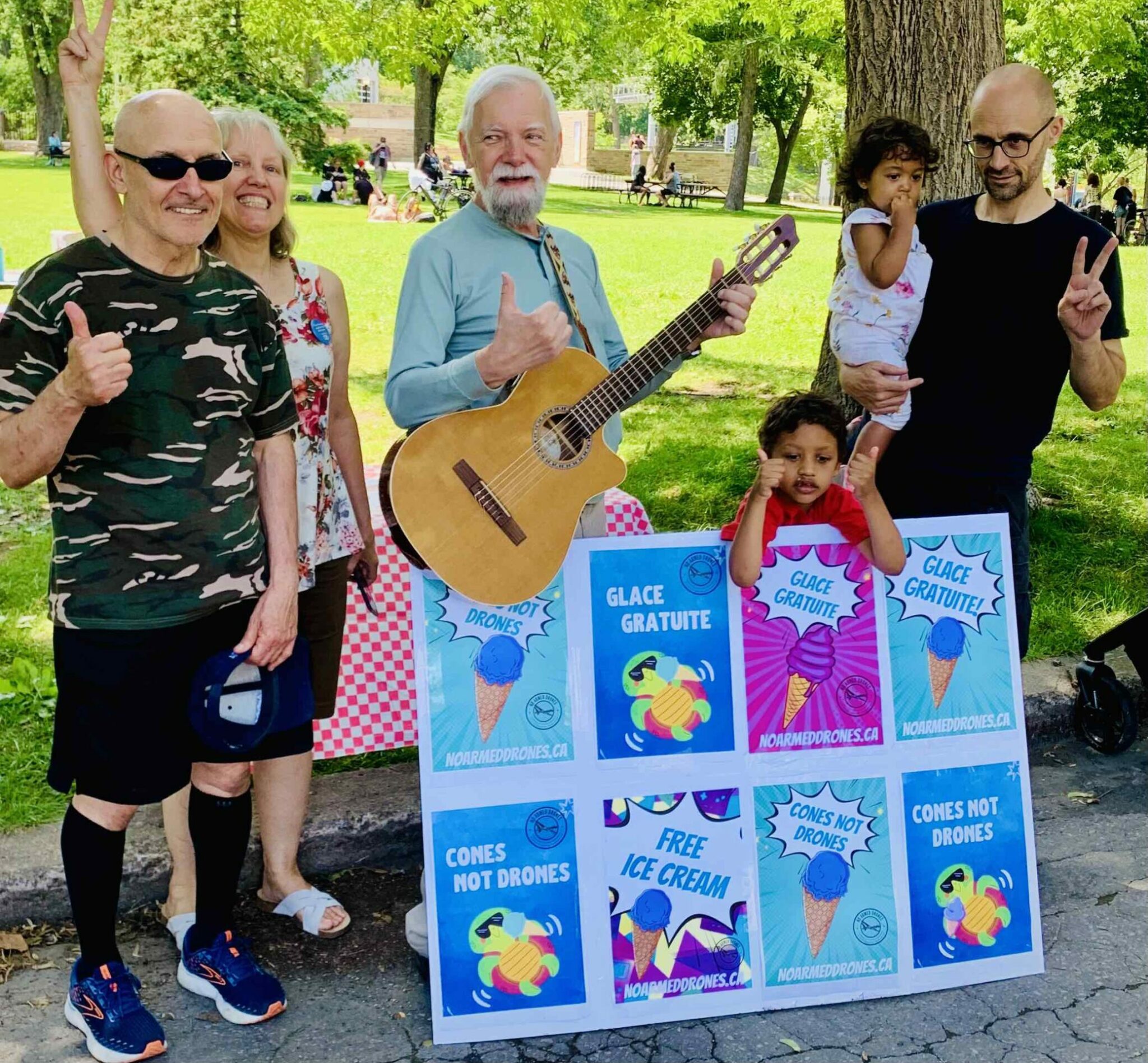Jan S: Stevie Wonder’s “Higher Ground” speaks to me as I find myself reacting to information and opinions to justify whatever side people want to sympathize with.

Banksy graffiti in Bethlehem(Flickr/Gwen Fran)
Information, especially that which helps people see outside the bubbles they find themselves in, has its place. But Charles Eisenstein’s invitation to use COURAGE (the capacity of the heart) feels like “higher ground” to me. https://charleseisenstein.substack.com/p/whose-reality-is-it
Hence my invitation to learn about the ongoing work to build bridges, to find better ways. One great source is this: https://wagingnonviolence.org/ . Let’s “keep on tryin’ till [we] reach [our] highest ground.”




 The First Step to Reconciliation
The First Step to Reconciliation


 Bruna Nota and Murray Lumley represented Conscience Canada at the annual Hiroshima Day event in Toronto this year. In a recent letter, Doug Hewitt-White points out, “As August 6th approaches we remember the criminal horror of Hiroshima and Nagasaki. Yet our country has chosen not to vote for the UN Treaty on the Prohibition of Nuclear Weapons approved by 122 other nations around the world. ”
Bruna Nota and Murray Lumley represented Conscience Canada at the annual Hiroshima Day event in Toronto this year. In a recent letter, Doug Hewitt-White points out, “As August 6th approaches we remember the criminal horror of Hiroshima and Nagasaki. Yet our country has chosen not to vote for the UN Treaty on the Prohibition of Nuclear Weapons approved by 122 other nations around the world. ”